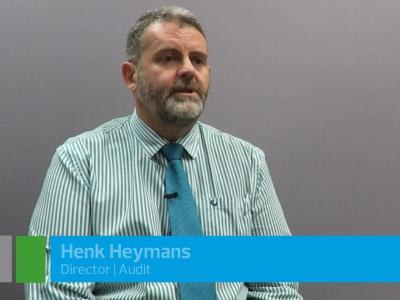Have you ever really thought about whether you rely on the work of auditors? Are auditors a distant thought or a foreign concept and we don’t think their work affects our lives in any significant manner?
The fact is, everyone relies on auditors of financial information in some way or at some point in their lives. Whether it is to give credibility to your own company and to retain your customers or financing, or whether your grandparents’ (or your own) retirement savings in a large, listed corporate are being used and safeguarded appropriately - you are relying on an auditor to check that for you.
We put our trust in auditors and assume that they are objectively scrutinising the financial information of a particular company. They assure us that the financial statements presented by that company are giving an accurate and transparent view of its financial state. The auditor’s product, an audit report, gives the users of the financial statements of a company the peace of mind that someone has double-checked the financial records and then reports on whether they have found anything misleading or materially wrong or not. In this way, auditors serve the public and we all need to be able to trust that auditors will look at financial information objectively while maintaining their integrity and honesty.
But what if the auditor that you are counting on is prejudiced in some way and does not look at the financial information as objectively as the public need them to? What if the auditor becomes biased in some way? Would you be willing to trust them then? Are you comfortable gambling with the longevity of your business or your life’s savings when the person double-checking the finances is giving a skewed opinion?
Various codes of conduct require auditors to remain independent of their clients, in their own work and mindset but also in appearance. They need to apply themselves objectively, without allowing bias to creep in. They also cannot appear to a third party to be biased in their work as an auditor.
Think of it this way, if you had invested your savings in a company that was run by a high-profile family and then heard that the daughter in this family had just married an auditor. That auditor also happened to be the one responsible for performing the audit engagement for that company. Would you be sure that the auditor would be unbiased and apply themselves sceptically to the financial records of the family business? Would you think that they would give an accurate opinion of the financial state if they had their own financial (and familial) investment in that family business to protect?
Or perhaps you overheard a friend, who is an auditor, bragging at a social event that they had just landed a huge client the previous week and they were going to be paid in the six-figures from that audit engagement. You also know that his audit firm has been battling for months to stay afloat, would you really feel comfortable that this auditor would give an honest report on those financial statements, when he is so reliant on the fee to be paid for that audit report?
This highlights why auditors need to remain independent, both in their own minds and intentions and in the public’s perception of them. Auditors must apply various safeguards for themselves and their firms to identify and respond to independence issues so that they do not allow their reasoning, scepticism, and integrity to become impaired in any way. Auditors lose all credibility when they are not objective, and their services become redundant. The public need auditors they can trust to tell the whole truth, without bias, when it comes to reporting financial information or it may cause serious damage to the economy and to individual livelihoods.
Kim Venter
Senior Manager: Audit Technical Training, Johannesburg




